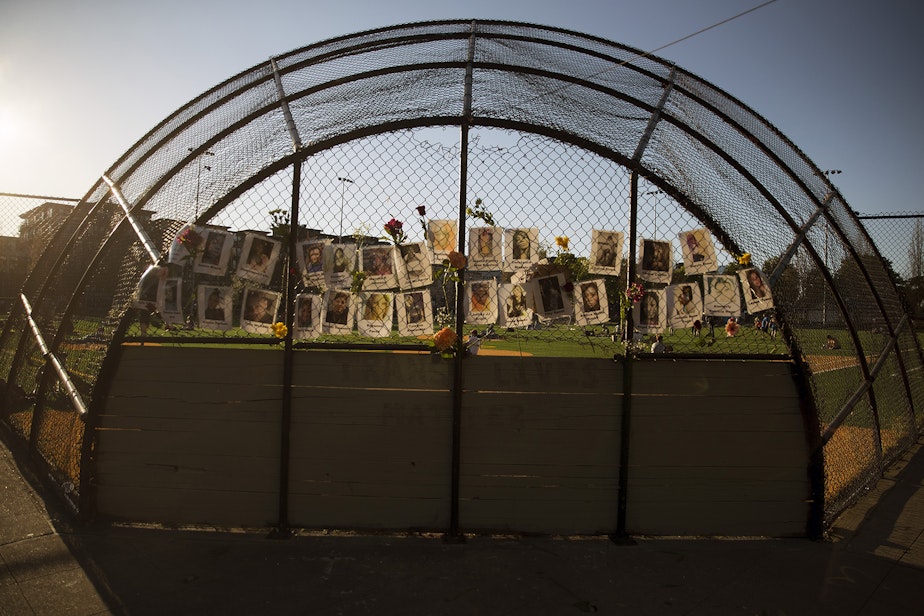The murder of George Floyd galvanized the country in 2020. But what's really changed since then?

Two years ago, George Floyd’s murder by a Minneapolis police officer forced the United States – at least temporarily – to reckon with its racist history and systemic violence against Black people.
Soundside connected with local Black leaders and activists in the faith community and politics to share their perspectives on whether there's been meaningful change since the protests for racial justice in 2020.
First, Soundside host Libby Denkmann spoke with KUOW reporter Amy Radil about efforts to transform the energy around police reform into policy changes. Here in Washington state, that included a dozen laws ranging from a new database tracking all serious uses of force by police, an investigative oversight office made up civilian teams, and new requirements surrounding de-escalation.
Denkmann also spoke with Nikkita Oliver, Representative Kirsten Harris-Talley and Dr. Patricia Hunter about their reflections on the two years since Floyd's murder.
Nikkita Oliver is a Seattle-based community organizer, artist, abolitionist and attorney. They ran for city council last year and are a founding member of the Seattle People’s Party.
"We need to drastically change the way we that think about how we generate safety in communities<" said Oliver. "How we meet basic needs; how we ensure that people have access to housing as a human right. We say it but we don't do it. How we ensure people have access to clean water and gender affirming full spectrum healthcare."
"These are actually things that would ensure more safety for everyone."
Representative Kirsten Harris-Talley represents the 37th District in the State House, including Beacon Hill, the Rainier Valley and part of Renton.
"Even in the realm of reform, we've made very little progress in reform," said Harris-Talley. "And I say that having served in a legislature that in 2021 passed the largest number of police reform bills that any given state did."
Dr. Patricia Hunter is the Pastor for Outreach and Education at Seattle First Baptist Church, interim pastor for worship at Mount Zion Baptist Church, and commissioner with Seattle Community Police Commission.
Sponsored
Listen to Soundside's full panel by clicking the audio above.



